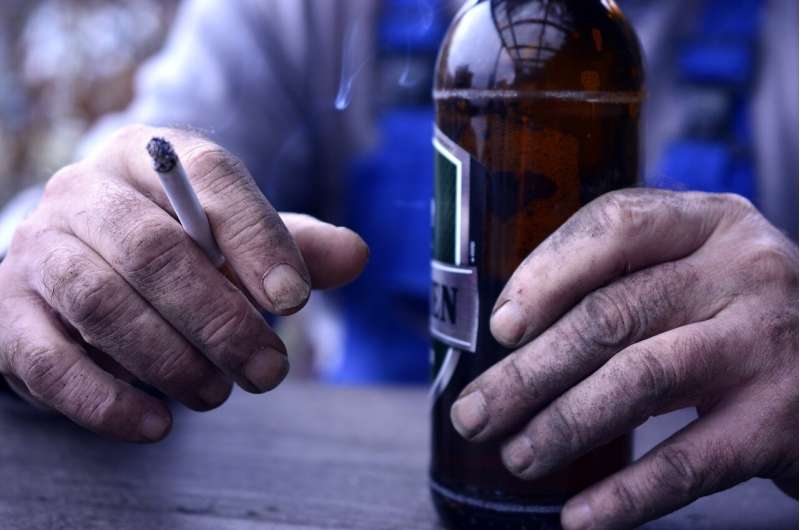This article has been reviewed according to Science X's editorial process and policies. Editors have highlighted the following attributes while ensuring the content's credibility:
fact-checked
proofread
Insula in focus: How stress affects alcohol cravings

A randomized controlled study conducted by researchers at the Central Institute of Mental Health (CIMH) in Mannheim has examined the effects of stress on neural reactivity to alcohol cues and addiction behavior. The study involved 98 individuals with alcohol problems.
Functional magnetic resonance imaging (fMRI) was used to measure brain activity after participants were exposed to psychosocial stress, physical stress, or control conditions. Additionally, alcohol craving and cortisol hormone levels were assessed. During a twelve-month follow-up phase, researchers also collected data on alcohol consumption.
Insula activation under psychosocial stress
The results showed that psychosocial stress triggered increased activation of the left insula, a brain region associated with processing reward stimuli and emotional cues. This stress-induced activation was specifically observed in participants' brains when viewing images with alcohol and not with neutral images.
Furthermore, insula activation correlated with heightened alcohol craving and increased alcohol consumption among participants. Interestingly, this sensitization of insula activation was only observed in the group exposed to psychosocial stress.
"These results underscore the significant impact that psychosocial stress has on neural reactions to alcohol cues and subsequent addiction behavior," says Associate Professor Dr. Patrick Bach, head of the Neuroenhancement and Behavioral Addictions research groups at CIMH. Previous neuroscience studies have already linked the insula with a craving for smoking. Now, it has been shown to play a central role in alcohol craving as well, particularly under psychosocial stress conditions.
Precision medicine approach for stress-induced drinking
The new study contributes to a better understanding of the neurobiological basis of alcohol dependence. "Our findings may be of interest for the development of new treatments, particularly to find a precision medicine approach for stress-induced drinking," says Dr. Bach. Understanding the role of the insula could thus facilitate the development of more targeted therapies that influence the underlying neuronal mechanisms of stress-induced drinking.
The study is published in the journal Biological Psychiatry.
More information: Patrick Bach et al, Stress-Induced Sensitization of Insula Activation Predicts Alcohol Craving and Alcohol Use in Alcohol Use Disorder, Biological Psychiatry (2023). DOI: 10.1016/j.biopsych.2023.08.024




















